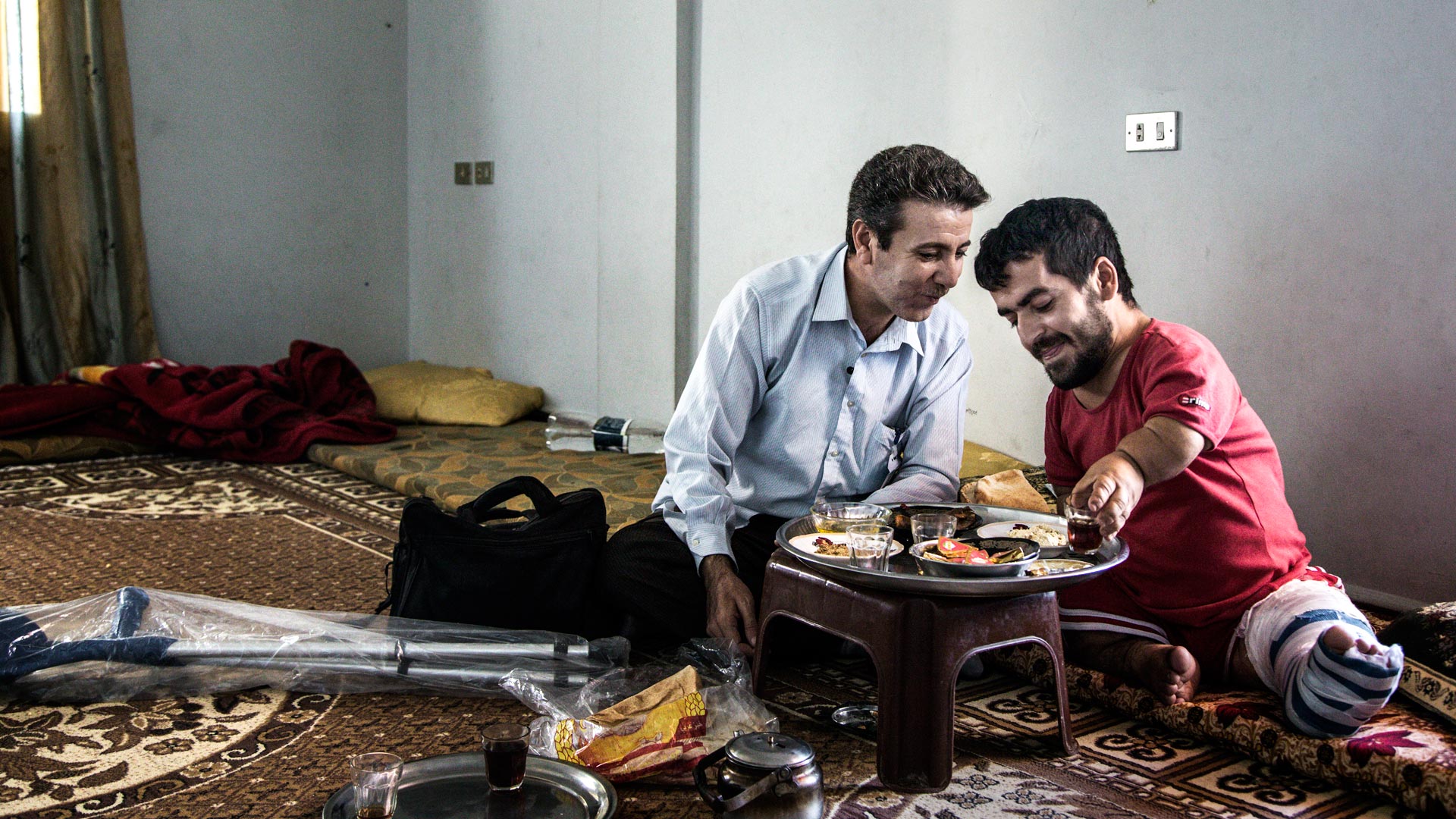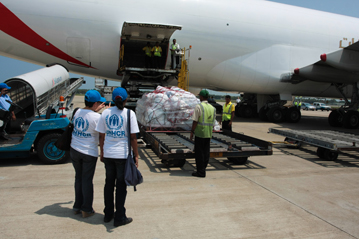UNHCR hopes to open new camps in Pakistan this weekend
UNHCR hopes to open new camps in Pakistan this weekend

GENEVA, Nov. 9, (UNHCR) - The United Nations refugee agency said Friday that it hopes to begin accepting this weekend the first of tens of thousands of refugees who entered Pakistan in recent weeks into newly opened camps where they can receive adequate nutrition and medical care.
Following an agreement reached Wednesday with the Pakistani government that calls for the immediate opening of 11 camps in the country with a total capacity for 150,000 people, the UN agency will first transfer the so-called vulnerable refugees now at the Killi Fazio staging site.
The estimated 3,000 people - mainly women, children, the elderly and sick - will be moved to the new Roghani site about 20 kilometres away from the Chaman crossing point near the Afghan border as early as Sunday. "This should free up room in Killi Faizo for other vulnerable Afghans seeking protection and assistance," Ron Redmond, UNHCR's spokesman, told a news briefing.
Redmond also announced that the agency is planning to send 2,000 pieces of plastic sheeting and 10,000 blankets next week to Herat in north-western Afghanistan from the Iranian city of Mashad. The convoy, which is being jointly organised with other UN agencies and the Iranian Red Crescent Society, will mark the first time that UNHCR has sent supplies into the country since the UN withdrew its international staff from Afghanistan.
"We have little idea of what is going on inside Afghanistan," Redmond said. "People are leaving urban centres and going to the countryside, but they also know that the borders are not open."
In addition to the group at Killi Faizo, UNHCR hopes that large numbers of the estimated 135,000 Afghans who have managed to enter Pakistan through mountain passes and back roads despite the closed frontiers will move into the camps. These so-called invisible refugees have for the most part moved in with family members or disappeared into the country's major cities such as Karachi and Peshawar.
UNHCR also hopes to begin transferring refugees in the Peshawar area, including those at the Jalozai site, during the coming week. The agency says that up to 500 people could be moved daily to the new Kotkai refugee camp located in the Bajaur tribal land area. The camp has a capacity for up to 20,000 people and is divided into four sections, each with its own community centre, school, and playground.
"We've said from the beginning that these are not the best places for camps," Redmond said referring to a question about the 11 sites. "Too close to the border, water may be a problem, security may also be of concern."
"We're trying to make the best with what we've got," he added.









